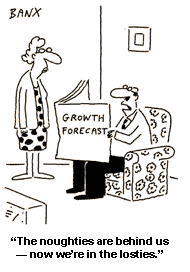The Olympian task of securing London

Roula Khalaf, Editor of the FT, selects her favourite stories in this weekly newsletter.
It seems we’ve been guilty of being a little too British about security for the London Olympics. Understatement is a wonderful thing in many ways, but when you have to double the estimate for the size of the security contingent that will be required, then the principle has probably been taken too far.
All understatement is gone now, however. The initial estimate of 10,000 guards has now risen to 15,000-20,000 with the army on standby to fill in any gaps. The UK defence secretary has even said ground-to-air missiles are available if needed.
Some of us are, frankly, suspicious. Is this really about securing the games or is there perhaps another agenda? Londoners are already preparing for the gridlock that will befall the capital; the roads closed off or narrowed so that Sepp Blatter and Jacques Rogge can be sped from their five-star hotels to the venues without delay or any unnecessary interaction with the host country’s citizens. We are ready for the new criminal offences that accompany an Olympic Games, such as obstructing athletes or drinking Pepsi within a five-mile radius of the stadium. Could it be the organisers fear not enough citizens will be inconvenienced and are acting to raise disruption to Olympian levels? One can imagine the BBC news report:
“Thousands of extra security staff are being drafted in to ensure that ordinary Londoners cannot get to work during the 2012 Olympics. Requests for extra funds to block off a number of popular routes are coming in and a sweep of the main arteries through London revealed a number of shocking ‘weak spots’ that might be utilised by office workers intent on ruining the spirit of the Olympics by getting to their desks on time. GCHQ, Britain’s covert intelligence centre, has also uncovered a plot by some Londoners to cycle to the office. Troops will now be deployed at important junctions to push sticks into the spokes of their wheels if they attempt to enter the city.
There are also rumours that some senior executives plan to bust the blockade by arranging helicopters to fly them to work. Olympic organisers would not comment on how they would tackle this threat but noted that the defence secretary has promised that surface-to-air missiles are available if needed.”
US security
The renewed focus on security may be partly due to American pressure. The US has denied some of the more lurid reports of plans to fly in hundreds of its own security guards but it is clearly taking a big interest in arrangements. Manufactured press outrage over US heavy-handedness has been seen before. Ahead of President George W. Bush’s state visit in 2003 the British press lambasted the US for daring to be unsatisfied with domestic security arrangements. On the day the visit began, however, a journalist revealed he had been working as a footman at Buckingham Palace for some weeks, having bypassed all security checks and secured the job using false references. Complaints about American concerns dried up forthwith.
Statesman-like talk
Earlier this month Nicolas Sarkozy and Barack Obama were caught bitching about the Israeli leader, Benjamin “Bibi” Netanyahu. Mr Sarkozy said he “couldn’t stand” Bibi any more because “he is a liar”. Mr Obama added: “You’re fed up with him; I have to deal with him every day.” As to Silvio Belusconi’s recent comments about Angela Merkel – they were frankly unprintable.

One assumed world leaders spent their time at important summits discussing weighty world affairs; now we know differently. They are enjoying bar-room banter, rounding on those who aren’t there. We assume they are drawing up plans to prevent economic collapse. In fact, they’ve gone into a plenary session on Cristina Fernández’s dress sense.
Had we been able to hear more of the Sarkozy/Obama exchange, the two would doubtless have moved on to a typical evening’s dissection of their fellow leader. “And have you seen how he walks; I mean like, who does he think he is?” “I know and have you seen his wife?” On it would have gone: “The other day he was, like, talking to me about West Bank settlements and stuff and I was, like, yeah, whatever, talk to the hand.”
Outside the door commentators await strategies to save the the euro; inside they are knocking back WKD vodka sitting there and criticising other leaders. No wonder the G20 nations want a seat at the table.
Comments